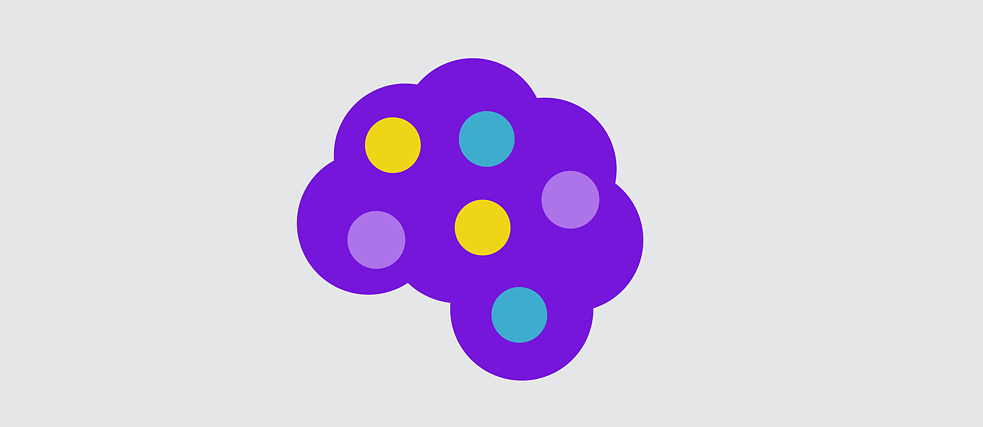Word! The Language Column
English is German in Spanish

The language of children is often poetic and philosophical. What can we learn from it as adults?
By Thomas Böhm
When my daughter was three years old, she came down with a fever and a cold. For a few days she did little but whimper and sleep. Then one morning, when the worst was over, she looked at me with glassy eyes and asked, “Where am I not?” And a moment later, “Papa, English is German in Spanish.” That prompted me to take out a notebook and start jotting down everything worth recording that she – and later her sister – said. Lines like: “There are four seasons: summer, autumn, winter, snow”, “Would you open the ball for me?” (i.e. peel an orange), “On the tiger’s birthday he’s bound to get meat for a present”, “Water doesn’t make crumbs”. Over time they grew into little stories: “People have several lives. In their life as a dead person, they lie in the grave and can’t do lots of things anymore: eat, drink, talk, fart, ride a bike, read. They can’t talk to other dead people either. But you can see their skeletons, which you can’t do with the living.”
The inexplicable wonderfulness of the world
So over the years a whole notebook filled up, which we like to flip through together now whenever we get a chance because those old utterances remind us of situations from back then. But what we can’t remember is how they actually learned the language. Yes, we spoke, sang and read aloud to them a lot. They went to preschool. And yet that doesn’t explain utterances like “Who actually made up the word ‘obviously’?” at the age of four.I’m not convinced by any of the theories I’ve found about language acquisition – if only because there are several of them and they all seem to be right in their way. Some view the ability to speak as innate, some as a result of interaction with people around us, some as part and parcel of a child’s general development. What I miss in these scientific explanations is the word “poetry” – I mean “poetry” in the sense most meaningful to me: as an approach to the inexplicable wonderfulness of the world.
The utopia of children’s language
The language of children has a beauty all its own. It is “innocent” in the true sense of the word, and downright philosophically astute, providing rich food for thought – on the nature of languages, for one thing. Isn’t there a word assigned to everything that exists or happens in the world? A word that’s different in each language (but can, of course, be the same or similar in cognate languages)? If I know every word in a given language – which of course is never possible, only a dictionary knows every word, and even it doesn’t know words that are just being born – I’m still can’t speak that language by any means. For I don’t know the culture behind it yet, the contexts, emphases and social grammar, not to mention the grammar of the language itself.How difficult all that seems – and how easy and playful the language of children, in contrast, in which lies one thing above all, to my mind: a utopia. Language can always be relearned. So why can’t that work in the other direction for a change? Not from child to adult, but from thinking like an adult back to thinking like a child. Naturally, I don’t mean regressing into the stupid immature behaviour of some adults, but the open-mindedness, the empathy, of which children are particularly capable.
Loose trust
Whilst taking a walk one day, we saw a stork hunting for food in a field just a few meters away from us. Our little daughter said, “The animals have loose trust in us because they know we don’t want to kill them. That’s why they don’t hurt us either.” What would a world based on “loose trust” look like – and not just between humans and animals? A world in which language barriers are whisked or wished (noch ein Wortspiel, um dem Stil des Autors nachzumachen} away as effortlessly as in the line “English is German in Spanish”. A world in which, instead of getting hung up on our narrow everyday lives, we occasionally wonder, “Where am I not?”In that spirit – and with one last quote from my daughters – to all children of language attuned to the poetry of the language of children: “So short from Berlin and me.”
Word! The Language Column
Our column “Word!” appears every two weeks. It is dedicated to language – as a cultural and social phenomenon. How does language develop, what attitude do authors have towards “their” language, how does language shape a society? ~ Changing columnists – people with a professional or other connection to language – follow their personal topics for six consecutive issues.